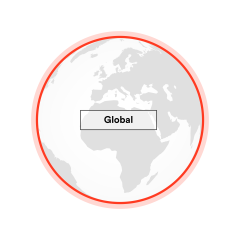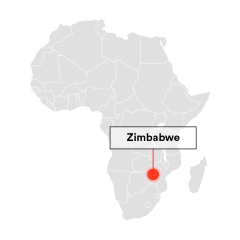Plan for effective implementation

Plan for effective implementation
Case Studies

Spotlight Initiative implemented the SASA! community mobilisation approach in both Haiti and Uganda, with careful focus on high quality training and mentoring of community activists and engagement with programme stakeholders.
In Haiti, Spotlight Initiative sensitised and trained women and girl leaders using the SASA! approach. In 2021, 26 mentors were trained, equipping them with the skills to support healthy relationships, build self-esteem, and apply effective facilitation techniques necessary for.
In Uganda, Spotlight programme scaled-up the SASA! community mobilisation and norm change models across districts. It focused on strengthening the knowledge and practical skills of key stakeholders to support action and change at community levels.
In both Haiti and Uganda, the SASA! approach has led to more structured and longer-term education and mobilisation processes in communities related to women's and girls' rights, non-violent education, positive masculinities and overall prevention of violence against women and girls.
SASA! is also a good example of combining reach and intensity – community members are exposed to SASA! repeatedly in their daily lives, using multiple strategies, and from fellow community members: training and support for Community Activists (CA) is intensive and ongoing, minimum of 1 CA per 500 community members in rural areas and 1 CA per 1500 in urban areas, one full-time SASA! staff member to support up to 25 CAs, with a programming timeframe of 3 years.



When the COVID-19 pandemic started, many Spotlight Initiative programmes were already being implemented and teams had to quickly adapt implementation to changing realities. Overall, Spotlight Initiative rapidly accelerated and redirected more than USD 21 million across programmes to address VAWG in the context of COVID-19. For example:
- Mobile and remote services were developed and reinforced to address the acute needs of women and girls. For example, the Zimbabwe programme scaled up mobile one-stop centre service provision, exceeding the set target by 300% and bringing women with disabilities and caretakers closer to services with shuttle buses.
- The Mexico programme adapted to the pandemic by partnering with one of the largest hotel chains to provide free accommodation to women and girl survivors of violence.
- During the pandemic, country programmes strengthened their coordination and advocacy activities to emphasise the importance of addressing violence against women and girls in the national COVID-19 response. In Uganda, high-level advocacy by Spotlight Initiative resulted in the Cabinet’s approval and subsequent inclusion of social welfare workers as essential workers during lockdowns to support the continuity of service provision.
- In Papua New Guinea, the country programme leveraged existing coordination mechanisms, such as the Protection Cluster - including the Gender-Based Violence (GBV), Child Protection, and Persons with Disabilities sub-clusters, as well as the Education Cluster, to rapidly respond to the spike in violence during COVID-19 and concurrent natural disasters.
- Country programmes also adapted evidence-based and innovative prevention initiatives. In Uganda, the SASA! programme for social norms transformation created safety circles to connect regularly via WhatsApp and text, and community activists and leaders checked in with at-risk women via phone or in-person while social distancing.







